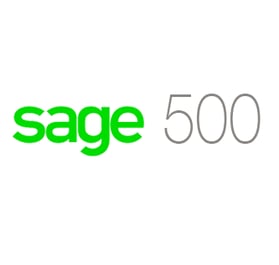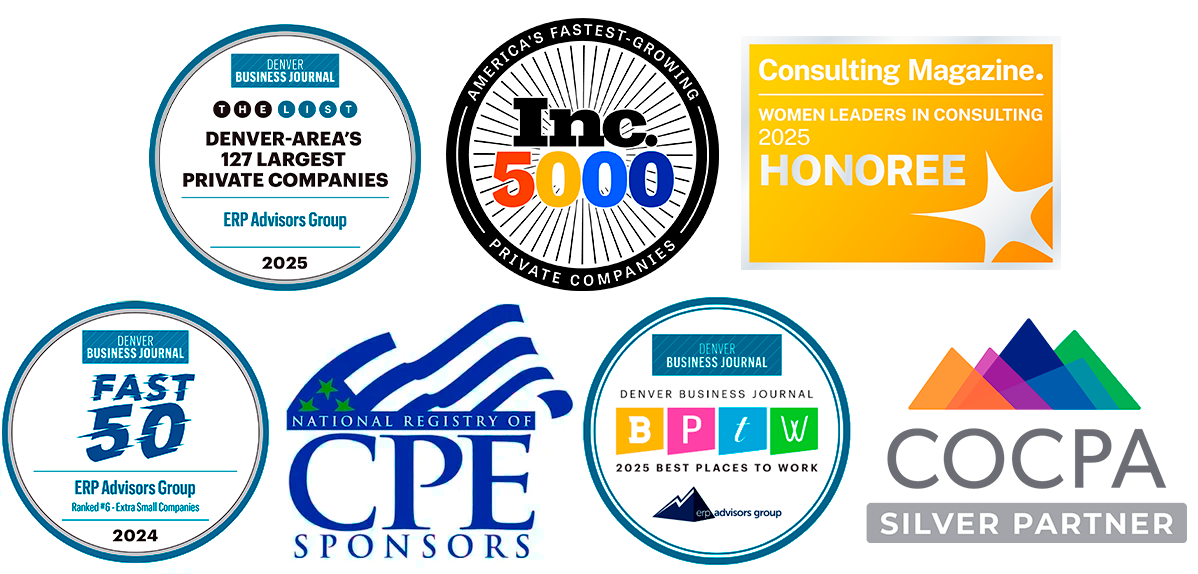
A Brief History of Sage 500:
Sage 500 was formerly known as MAS 500 which was developed in 1998 and was the predecessor to MAS 90. According to Net@Work, a Sage 500 support partner, “Sage 500 ERP is designed for small to midsized distributors and light manufacturers with domestic operations, typically larger companies with advanced requirements.” The product was architected in Microsoft Visual Basic 6.0 (VB6) to operate through MS SQL and MS OS, giving it strong ties to the software giant Microsoft.
In 2012, Sage’s North American CEO, Pascal Houillon, announced, “the end of product brand names.” This strategy phased out the legacy product names and rebranded them with a more uniform way of categorizing Sage products. As a result, Sage ERP MAS 500 was renamed to Sage 500 ERP. As of 2024, Sage currently supports three versions of Sage 500: Sage 500 ERP 2019, Sage 500 ERP 2021, and Sage 500 ERP 2023.
Talk to an Independent ERP Expert About Your Best Path Forward from Sage 500
Understanding Sage 500 Support Schedule:
From Sage’s viewpoint, support means, “product versions [continuing] to receive tax updates, updates to government forms, and software fixes” (see sage.com/selfservice). If a product is no longer supported by Sage, it will only receive product updates or hotfixes at Sage’s discretion.
Sage 500 typically has three versions supported at any given time, retiring the oldest supported version with each new release. Sage indicated that with the next major release, support for Sage 500 ERP 2019 will end. From 2013 until 2019, Sage released a product update every year (except for 2015). But Sage scaled back releases to every other year for versions 2019, 2021, and 2023. All versions that predate Sage 500 ERP 2013 have long since been retired.
Sage periodically releases a Sage 500 supported versions chart, as well, but this is sometimes reserved for partners and customers. Here is a schedule of historical versions and their retirement dates:
- Sage 500 ERP 2013
- Released November 2012
- Retired February 2017
- Sage 500 ERP 2014
- Released December 2013
- Retired June 2018
- Sage 500 ERP 2016
- Released December 2015
- Retired June 2019
- Sage 500 ERP 2017
- Released February 2017
- Retired March 2021
- Sage 500 ERP 2018
- Released June 2018
- Retired October 2022
- Sage 500 ERP 2019
- Released June 2019
- Will be retired with the next release of Sage 500, expected for 2025.
- Sage 500 ERP 2021
- Released March 2021
- Support is ongoing.
- Sage 500 ERP 2023
- Released October 2022
- Support is ongoing.
Versions currently being supported have access to web and phone support, year-end updates which include AP and electronic reporting, product updates (at Sage’s discretion), and hotfixes (at Sage’s discretion). Regardless of the product version, Sage 500 customers will always have access to Sage’s Online Support Knowledge Base and Sage's Community Hub. You can find all Sage 500 documents, including those marked as retired here.
What Can Existing Sage 500 Customers Do?
Fortunately, current Sage 500 customers can find some peace in Sage’s stance against forced migrations and their continued commitment to product releases. To receive support, customers must be on Sage 500 ERP 2019, Sage 500 ERP 2021, or Sage 500 ERP 2023. This can be difficult if you are on an older version of Sage 500. Fortunately, Sage outlines the upgrade path for different versions of Sage 500 here. For direct upgrade guidance, you should speak directly with your Sage representative or implementation partner, as each business model is unique.
Upgrading to a supported version of Sage 500 may be a great option for companies that Sage 500 is still effectively serving, especially given that customers should not change ERPs unless it is absolutely necessary. However, Sage 500 is no longer really considered a product for new client acquisition and many partners are discontinuing their Sage 500 practices (although they may allow existing customers to purchase the solution when acquiring a new entity or other extenuating circumstances). VARS are also experiencing attrition of their own knowledgeable Sage 500 resources and will not likely invest in teaching the product to new resources. This will lead to an ever-shrinking marketplace of technical resources who can support your product even if Sage provides the software updates. Therefore, Sage 500 customers may need to evaluate their options moving forward. Many partners are encouraging clients who are not ready to migrate to implement “technology protection subscriptions” that include upgrades or offer credits when they move to other ERP products. This provides a minor stepping stone for a full-scale ERP upgrade.
We recommend that if you are on an unsupported version of Sage 500, are unable to upgrade to a supported version, are experiencing inhibited growth, or any combination of these factors, you should evaluate your needs and undergo a full-scale ERP selection. By identifying your needs and the adequate solutions available on the market, you can ensure you select the right ERP for the future of your business, whether that be a Sage product or another ERP.
If you are unsure what the best path forward is, schedule a free consultation with our expert ERP consultants. We are here to help however we can. If you would like more information on the ERP market and what solutions are out there, download our free guide to ERP vendors in 2024.





